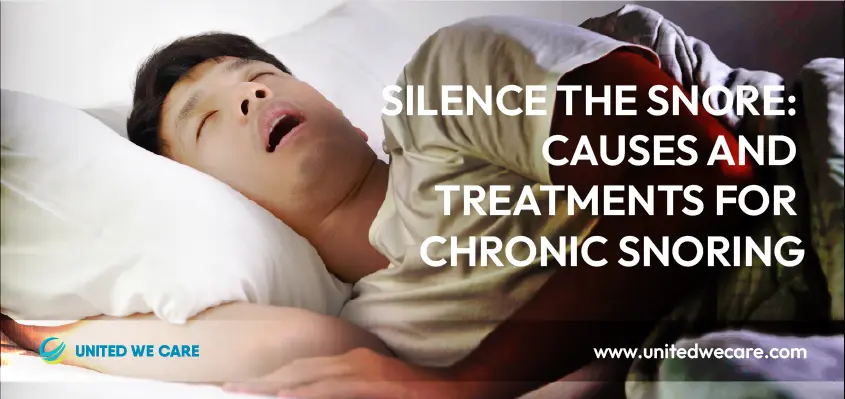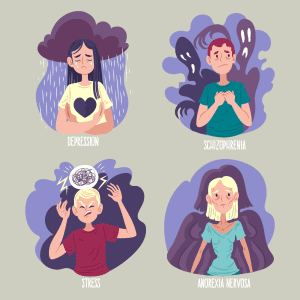Introduction
Snoring is a commonplace issue that affects a significant portion of the population, causing disturbances in sleep patterns and often leading to daytime fatigue. While occasional snoring may be harmless, sometimes snoring can indicate an underlying health condition. Understanding the causes and potential treatments for chronic snoring is essential for those seeking relief and better sleep quality. This article will delve into the reasons behind snoring, its indications, the diagnosis process, and the different treatment alternatives.
What is Snoring?
Snoring is the sound that occurs during sleep when the flow of air through the nose and mouth is partially blocked. It is a common condition that occurs during sleep, and according to some estimates, about 57% of men and 40% of women snore [1] [2].
During sleep, the throat muscles and tissues relax, collapsing inwards and narrowing the passageway to the lungs. When the air passes, the tissues in the throat, such as the soft palate, vibrate [1] [2]. Snoring itself lies on a spectrum, with one end being simple snoring wherein no other nocturnal issues are present, and there is little to no consequence in daily life. The other end is disorders like obstructive sleep apnea (OSA) [3]. Thus, in some individuals, snoring may indicate a sleep disorder.
While simple snoring may not have any significant consequences apart from an effect on the relationship with one’s partner or family member who shares a room, it may be harmful if it is chronic and indicative of a disorder. For instance, chronic snoring may cause frequent headaches [4], excessive daytime sleepiness, gasping for breath, and waking when asleep [1], and may even increase the risk of stroke or other heart diseases [5].
What are the Causes of Snoring?
As mentioned, the noise produced during the sleep phase is because of the vibration of soft tissues in the throat. However, various risk factors for snoring make some people more likely to snore than others. These risk factors include [1] [2] [3] [6]:
- Male Sex: Many studies have shown that those assigned male at birth or those with male sex are more likely to snore. While the exact reason is unclear, some attribute it to throat anatomy and body fat distribution in the male sex.
- Obstructed Nasal Airways: Structural issues such as nasal polyps or congestion due to allergies or sinus infections can obstruct the nasal passages, leading to snoring.
- Anatomical factors: Some individuals have weak throat muscles, large tonsils or tongues, deviated septum, and other anatomical factors that make the airway narrow and make them more likely to snore.
- Obesity: Excess weight and fatty tissues around the neck and throat can pressure the airway, leading to snoring.
- Sleep Position: Sleeping in a supine position can lead to the collapsing of the tongue and soft palate backward, which obstructs the airway and causes snoring.
- Alcohol and Sedatives: Consuming alcohol or some sedatives before bed can relax the throat muscles excessively, contributing to snoring.
Snoring is also common in families; thus, some genetic linkage may be present. Alternatively, the anatomical features mentioned above could be hereditary.
What are the Symptoms of Snoring?
Apart from the characteristic sound, it has several associated symptoms when snoring is chronic or indicative of some other condition like sleep apnea. These include:
- Daytime sleepiness
- Fatigue
- Morning headaches
- Difficulty concentrating
- Irritability and mood swings
- Restless sleep
- Gasping or choking sounds during sleep
Since snoring often causes more disturbances in the sleep of one’s partner than oneself, it may affect one’s relationships as well. Further, studies have shown that conditions like Obstructive Sleep Apnea, the main symptom of chronic snoring, are a risk factor for heart conditions, including stroke [5]. Thus, it becomes essential to identify when snoring becomes problematic and causes health complications.
How to Diagnose and Treat Snoring?
If snoring becomes chronic and significantly impacts daily life, it is vital to seek a medical evaluation. Sleep experts with special training in assessing, diagnosing, and treating sleep disorders conduct a thorough assessment to diagnose snoring and related sleep issues.
Typically, for diagnosis, the examines a person’s medical history and evaluates the frequency, severity, and duration of snoring episodes. They also closely monitor instances of gasping or choking. Other symptoms, like daytime sleepiness, along with the effect of snoring on quality of life, are also examined. When assessing overall health, medical professionals consider various factors, including alcohol consumption and high blood pressure. They also physically examine nasal passages, throat, and mouth to find any structural abnormalities. Finally, based on the expert’s analysis, a polysomnography test may be conducted to monitor various physiological parameters during sleep [1].
Treatment for chronic snoring involves various approaches to reduce or eliminate the underlying causes of snoring. Here are some common strategies [1] [2]:
- Lifestyle modifications: Encouraging weight loss, avoiding alcohol and sedatives, and maintaining a regular sleep schedule can help alleviate snoring.
- Sleep position adjustments: Sleeping on one side instead of one’s back can reduce snoring. Special pillows or devices can help encourage side sleeping.
- Continuous positive airway pressure (CPAP): CPAP machines deliver a steady flow of air pressure through a mask to keep the airways open during sleep.
- Oral appliances: These devices are custom-made by dental professionals to reposition the jaw and tongue, keeping the airway open during sleep.
- Surgery: Sometimes, sleep experts suggest surgical interventions like tonsillectomy to correct anatomical abnormalities contributing to snoring.
It is important to consult a sleep specialist to determine the most appropriate treatment plan based on the individual’s specific condition and needs.
Conclusion
Chronic snoring can have a detrimental effect on an individual’s sleep quality and overall well-being. Addressing the underlying causes of snoring to improve sleep and prevent potential health complications is crucial. Seeking medical advice can provide valuable insights and help restore peaceful nights of uninterrupted sleep. Lifestyle modifications, such as weight loss, positional changes during sleep, and avoiding alcohol and sedatives, help reduce snoring. If you are experiencing difficulty snoring, contact the sleep specialists at United We Care. Our team of experts is dedicated to offering assistance and effective solutions tailored to your specific needs. Additionally, consider participating in our Advanced Program for Sleep Disorders or a beginner’s course called Sleep Wellness program to understand and manage your issues with sleep and snoring.
References
- R. J. Schwab, “Snoring – brain, spinal cord, and nerve disorders,” Merck Manuals Consumer Version, https://www.merckmanuals.com/home/brain,-spinal-cord,-and-nerve-disorders/sleep-disorders/snoring (accessed Jun. 26, 2023).
- E. Suni and K. Smith, “Snoring: The causes, dangers, & treatment options,” Sleep Foundation, https://www.sleepfoundation.org/snoring (accessed Jun. 26, 2023).
- P. Counter and J. A. Wilson, “The management of simple snoring,” Sleep Medicine Reviews, vol. 8, no. 6, pp. 433–441, 2004. doi:10.1016/j.smrv.2004.03.007
- A. I. Scher, R. B. Lipton, and W. F. Stewart, “Habitual snoring as a risk factor for chronic daily headache,” Neurology, vol. 60, no. 8, pp. 1366–1368, 2003. doi:10.1212/01.wnl.0000055873.71552.51
- S. Redline et al., “Obstructive sleep apnea–Hypopnea and incident stroke,” American Journal of Respiratory and Critical Care Medicine, vol. 182, no. 2, pp. 269–277, 2010. doi:10.1164/rccm.200911-1746oc
- F. G. Issa and C. E. Sullivan, “Alcohol, snoring and sleep apnea.,” Journal of Neurology, Neurosurgery & Psychiatry, vol. 45, no. 4, pp. 353–359, 1982. doi:10.1136/jnnp.45.4.353










